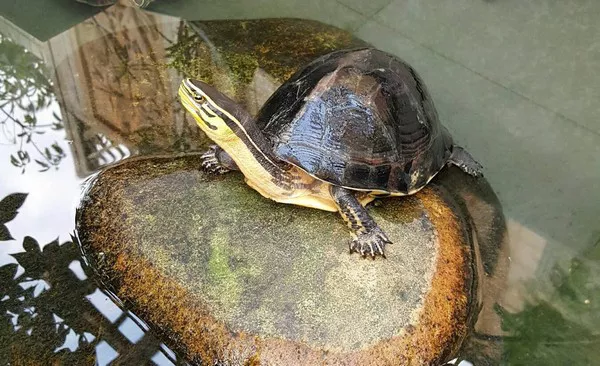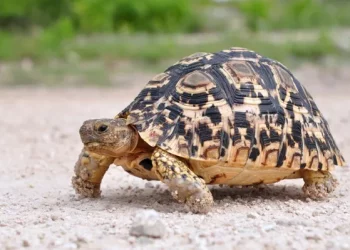Tortoises are fascinating creatures, often admired for their slow, deliberate movements and long lifespans. As herbivores, their diet primarily consists of various plant materials, including leaves, which provide essential nutrients and hydration. However, not all leaves are suitable for tortoises. This comprehensive guide explores the types of leaves tortoises can eat, ensuring they receive a balanced, nutritious diet.
The Importance of Leaves in a Tortoise’s Diet
Nutritional Benefits
Leaves are an essential part of a tortoise’s diet, offering numerous nutritional benefits. They are rich in fiber, vitamins, and minerals that are crucial for the overall health and wellbeing of tortoises. Fiber aids in digestion and helps maintain a healthy digestive tract. Additionally, leaves provide essential vitamins such as Vitamin A, Vitamin C, and several B vitamins, which support immune function, skin health, and metabolic processes.
Hydration
Tortoises obtain a significant portion of their hydration from their diet, especially through the consumption of fresh leaves. Ensuring they have access to moist, leafy greens can help prevent dehydration, particularly in warmer climates or during dry seasons. Hydration is vital for maintaining kidney function and preventing conditions such as kidney stones or bladder issues.
Natural Behavior
Feeding tortoises a variety of leaves can also promote natural foraging behavior, which is beneficial for their mental and physical health. Foraging encourages activity, helps prevent obesity, and stimulates their natural instincts, making their captive environment more enriching and similar to their wild habitat.
Safe and Nutritious Leaves for Tortoises
Edible Leaf Varieties
Tortoises can safely consume a variety of leaves, which can be sourced from both wild and cultivated plants. It is important to ensure that the leaves are free from pesticides, herbicides, and other contaminants. Here are some of the most nutritious and safe options:
Dandelion Leaves
Dandelion leaves are a favorite among tortoise owners due to their high nutritional value. They are rich in vitamins A and C, calcium, and iron. Dandelion leaves can be offered fresh or dried and are known to support digestive health and boost the immune system.
Collard Greens
Collard greens are another excellent option, providing a good balance of calcium and phosphorus, essential for strong bones and shell health. They also contain fiber and vitamins A, C, and K. Collard greens should be offered in moderation due to their oxalate content, which can interfere with calcium absorption if consumed in large quantities.
Grape Leaves
Grape leaves are highly nutritious and safe for tortoises. They are rich in fiber, vitamins A and C, and calcium. Grape leaves can be fed fresh and are often readily accepted by tortoises. They also provide a variety of textures, which can be stimulating for the tortoise.
Mulberry Leaves
Mulberry leaves are a nutritious choice, high in protein, fiber, and various vitamins and minerals. They are especially beneficial for their calcium content, promoting healthy bone and shell development. Mulberry leaves can be fed fresh or dried.
Moderation and Variety
Balancing the Diet
While leaves are a crucial part of a tortoise’s diet, it is essential to provide a balanced diet that includes a variety of plant materials. Over-reliance on a single type of leaf can lead to nutritional imbalances. Incorporating a diverse range of leaves and other plant foods ensures that tortoises receive a wide spectrum of nutrients necessary for their health.
Avoiding Toxic Leaves
Not all leaves are safe for tortoises. It is important to avoid leaves from toxic plants, which can cause serious health issues. Some common toxic leaves include:
Rhubarb Leaves
Rhubarb leaves contain oxalic acid, which is highly toxic to tortoises. Consumption can lead to kidney damage and other severe health problems.
Tomato Leaves
Tomato leaves contain solanine, a glycoalkaloid poison that is harmful to tortoises. Even small amounts can cause digestive distress and other health issues.
Oleander Leaves
Oleander leaves are extremely toxic and can be fatal if ingested by tortoises. They contain cardiac glycosides, which can cause severe heart issues.
Seasonal and Geographic Considerations
Seasonal Availability
The availability of certain leaves can vary with the seasons. It is important to understand the seasonal patterns of local vegetation to ensure a consistent supply of safe and nutritious leaves for your tortoise. In some regions, it may be necessary to grow specific plants or find alternative sources during off-seasons.
See Also: What Plants Are Safe for Tortoises?
Geographic Adaptations
Different tortoise species have evolved to thrive on the vegetation available in their native habitats. Understanding the natural diet of your tortoise species can help in selecting appropriate leaves. For example:
Mediterranean Tortoises
Species such as the Hermann’s tortoise and the Greek tortoise are accustomed to a diet rich in fibrous, leafy greens and wild herbs. Suitable leaves include dandelion, chicory, and clover.
Desert Tortoises
Desert species, like the Russian tortoise, thrive on a diet that includes tougher, drought-resistant plants. Suitable options include prickly pear cactus pads (de-spined), hibiscus leaves, and grape leaves.
Cultivating Safe Leaves
Home Gardening
Growing your own tortoise-safe plants can ensure a steady supply of nutritious leaves while avoiding the risks of pesticides and contaminants. A home garden dedicated to tortoise-friendly plants can be an excellent way to provide fresh, safe, and organic leaves.
Pesticide-Free Sources
If you are sourcing leaves from outside your home, it is crucial to ensure they come from pesticide-free areas. Farmers’ markets, organic farms, and wild foraging in uncontaminated areas can be good sources. Always wash leaves thoroughly before offering them to your tortoise.
Conclusion
Providing a variety of safe and nutritious leaves is essential for the health and well-being of tortoises. By understanding the nutritional benefits, avoiding toxic options, and ensuring a balanced diet, tortoise owners can support their pets‘ natural behaviors and long-term health. Remember to consider seasonal and geographic factors and explore the possibility of home gardening to ensure a consistent and safe supply of leafy greens. With proper care and attention to their dietary needs, tortoises can thrive and enjoy a healthy, enriched life.
Related Topics:


























